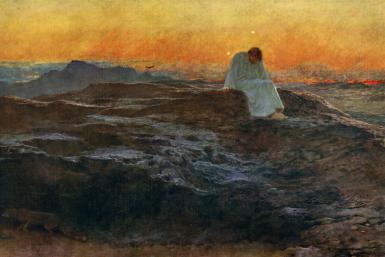The people referenced in these blessings are considered in a communal way. In particular, they are the followers of Christ within the Greek-speaking community for whom the author of the Gospel of Matthew wrote. They are also, in another sense, all humans. Common folk. People like you and me.
We might not want to recognize ourselves in these lists, or in others who find themselves described within the Beatitudes. It’s an uncomfortable association.
Yet among these lists of challenging human conditions, we’re likely to identify with one or more of the circumstances that are described by Christ in the Beatitudes. Since we’ve had these experiences, we are encouraged to develop empathy and connection with others. If we have recognized ourselves in these Beatitudes, we can also reach out to those who are living within these circumstances and experiences.
These blessings remind us that we are connected to each other, as well as being welcomed into the community of God’s children. This expansive view of who is blessed also cautions us that we’re not in charge of the invitation list for the kingdom of heaven. We don’t decide who sits at the common table.
This human community belongs to Christ, who has given out the invitations. Now, elbow to elbow, we’re invited to share more than just a meal. — Rev Gail
Meditations:
You are me, and I am you.
Isn’t it obvious that we “inter-are”?
You cultivate the flower in yourself,
so that I will be beautiful.
I transform the garbage in myself,
so that you will not have to suffer.
I support you; you support me.
I am in this world to offer you peace;
you are in this world to bring me joy.
— Thich Nhat Hanh
Challenge or Question: Who in your life is a sounding board for you? Who holds up a mirror for you and helps you become more self-aware? And for whom do you offer this reciprocity?
